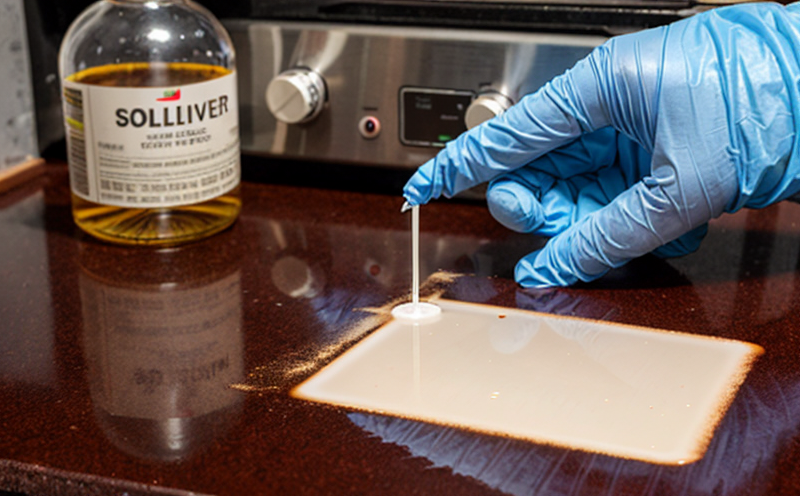River Sediment Solvent Residue Testing
River sediment solvent residue testing is a critical process used to monitor and ensure environmental compliance in sectors such as petrochemicals, pharmaceuticals, and manufacturing. This service involves the analysis of river sediments for trace amounts of organic solvents that may have been released into waterways during industrial processes or accidental spills.
The goal of this testing is twofold: to ensure regulatory compliance with environmental protection laws and to safeguard public health by minimizing exposure to harmful chemicals. This service plays a pivotal role in the chemical industry, where the integrity of water resources directly impacts operational efficiency and sustainability.
Our laboratory uses advanced analytical techniques such as Gas Chromatography-Mass Spectrometry (GC-MS) and High Performance Liquid Chromatography (HPLC) to identify and quantify solvent residues. The process begins with the collection of river sediment samples, which are then processed in our state-of-the-art laboratories.
Specimen preparation involves thorough extraction of solvents using appropriate solvents followed by purification steps such as distillation or solid-phase extraction (SPE). The purified extracts are then analyzed using precise analytical methods to determine the presence and concentration of target organic compounds. Acceptance criteria are based on international standards like ISO 17025, ensuring that all tests meet rigorous quality assurance protocols.
The importance of this service cannot be overstated, especially in regions with sensitive ecosystems or high levels of industrial activity. By providing accurate and reliable data, we help our clients make informed decisions about their operations, thereby reducing environmental impact and fostering sustainable practices.
Real-World Applications
In the petrochemical sector, river sediment solvent residue testing is crucial for identifying potential leaks from storage tanks or pipelines. In pharmaceutical manufacturing, it helps ensure that production processes do not inadvertently contaminate nearby water bodies with harmful solvents.
- Identifies sources of pollution in rivers and lakes
- Supports environmental impact assessments (EIA)
- Aids compliance with regulatory requirements like the Clean Water Act
- Enhances reputation through responsible corporate stewardship
Why It Matters
River sediment solvent residue testing is essential for maintaining environmental quality and promoting sustainable practices. The presence of organic solvents in river sediments can lead to degradation of aquatic ecosystems, harm to wildlife, and potential health risks for humans.
The testing process not only helps identify pollutants but also provides valuable insights into the effectiveness of pollution control measures implemented by industries along waterways. This information is crucial for continuous improvement and mitigation efforts.
By conducting this type of testing, we contribute to broader goals such as reducing greenhouse gas emissions through improved resource management, conserving biodiversity in affected areas, and enhancing public health standards.
Environmental and Sustainability Contributions
- Reduces contamination of aquatic ecosystems
- Promotes sustainable industrial practices
- Supports reclamation projects in contaminated areas
- Fosters community trust through transparent reporting
Our commitment to environmental stewardship extends beyond individual testing services. We actively participate in collaborative initiatives aimed at addressing broader environmental challenges and promoting sustainable development.
Competitive Advantage and Market Impact
- Pioneering use of advanced analytical techniques for enhanced accuracy
- Strong client partnerships fostering long-term loyalty
- Leadership in adopting stringent quality standards
- Recognition from regulatory bodies ensuring compliance
Our expertise in river sediment solvent residue testing provides a significant competitive edge, helping our clients stay ahead of evolving environmental regulations and market trends. This service is particularly valuable for companies seeking to differentiate themselves through responsible business practices.





